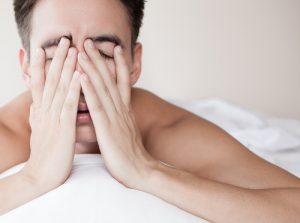Over 22 million Americans have a sleep apnea condition and more than 80 percent of moderate to severe sleep apnea cases are undiagnosed. On average, our lungs allow us to take 20,000 breaths in a 24-hour span, however, sleep apnea decreases this number significantly because the condition is responsible for causing breathing to stop. Though the pauses in breathing may last only a few seconds, some sleep apnea sufferers go minutes without breathing, repeatedly throughout the night, making this condition a life-threatening one.
Do You Have Symptoms of Sleep Apnea?
Many people are unaware that they suffer from sleep apnea. If you experience the following symptoms, take the time to be evaluated for sleep apnea:
- Wake up coughing.
- Excessive, loud snoring.
- Wake up choking, gasping, or feeling suffocated.
- Wake with chest pain.
- Morning headaches.
- Dry mouth or throat pain upon waking.
- Difficulty concentrating.
- Extreme sleepiness during the day.
Certainly, any of these symptoms could be signs of a cold, TMJ, poor saliva production, stress, anxiety, or other health conditions. Your Red Bank dentist can diagnose sleep apnea for certain so you know whether a night guard or a visit to your regular doctor is the next step.
See Your Red Bank Dentist for a Sleep Apnea Diagnosis
Because sleep apnea restricts breath, it lowers the oxygen levels in your blood, which affects your brain, heart, organs, and entire well-being.
It is often recommended that sleep apnea sufferers make lifestyle changes to help their condition. Weight loss, low alcohol consumption, no smoking, and a low-fat diet can help overall health, which could minimize sleep apnea.
Sleep apnea is unlikely to simply disappear, however, and is a serious health problem if left untreated. For some people, a diagnosis will take time and perhaps even a sleep study. Seeing your dentist can tell you sooner whether you have obstructive sleep apnea. Your dentist will be able to see if your airways are being blocked by your tongue and throat tissues. Obstructions like these impact how air flows and cause sleep apnea.
There are typically three ways to treat or correct sleep apnea: oral surgery, a CPAP machine to push air through the blockage, or an oral appliance, which opens the airway by bringing the jaw forward. Visit Dr. Carole Sherrod Jewell, Red Bank dentist, for your consultation and find out whether you have sleep apnea and how it can be addressed.



